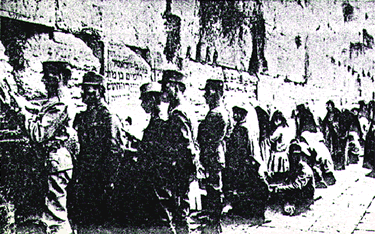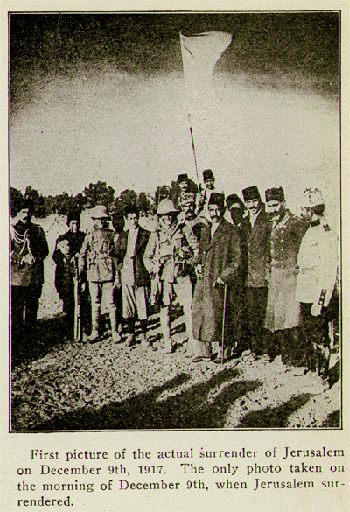|
The
history of the Jews in Europe is compelling from the sociological
as well as the cultural standpoint. |
|
Gallery:
a connection between European and Middle Eastern history
|
||
| Religious and sentimental attachment to the ancient homeland endured, but the persistence of antisemitism gave rise to political Zionism in the late nineteenth century. |
 |
||
| In the
course of the nineteenth century, the European Great Powers became
increasingly involved in the affairs of the Middle East. Above: Austro-Hungarian soldiers praying at the Western Wall of the Temple in Jerusalem during the First World War, when the Habsburg and Ottoman Empires were allies. Access to the Wall was then limited to a narrow alleyway. |
| The Ottomans surrender Jerusalem to British forces, December 1917. It was a most welcome development for the Entente in the wake of the disasters of Passchendaele and Caporetto. In June, Prime Minister Lloyd George had asked General Allenby to "to take Jerusalem as a Christmas present for the nation." In November, the government issued the Balfour Declaration, in which it announced that it viewed "with favour the establishment of a national home for the Jewish people," a charge that became part of the League of Nations mandate for Palestine assigned to Great Britain in 1922. The Great War lent an impetus to both Arab and Jewish national liberation movements, which some members of each regarded as sympathetic and compatible. | ||
 |
||
|
|
last
updated
21 August, 2002
|